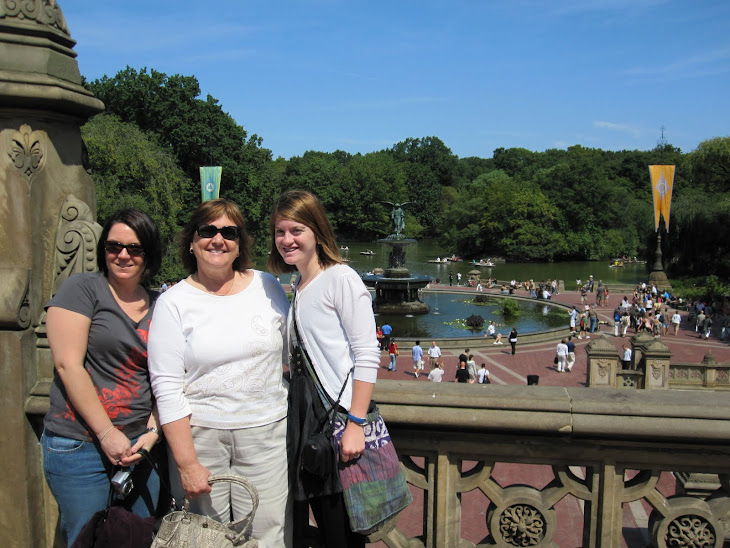

Today was "politico day." We began with a meeting with Fransisco Aguirre Sacasa, the party deputy to the National assembly for the Partico Liberacion Conservico (PLC.) He is a congressman, and head of the party opposed to the current president, Daniel Ortega. So think head of the Republican party in the US if he was a Senator. He was clearly a politician ... articulate, well dressed, and flirtatious. He had a strong message, though, and a different take on the political situation than we've heard so far.
His focus is education. He believes that the politicians should focus not on poverty eradication but in primary, secondary and vocational schools for a long-term recovery. The challenge, he believes, is to preserve democracy in the midst of very low per capita income and extreme aid dependency. He is clearly disillusioned with the current regime. He believes that Ortega was once a revolutionary that has morphed into something else that confuses state and private property. It is on record that Ortega accepted more than $450 million in aid from Venezuela via Hugo Chavez that has not reached the people. (Of course, one of the claims against the PLC candidate is that he personally took $100 million of public funds.)
Sacasa believes the constitution itself is under siege, and from what we have heard of the current congress, he may well be right. He thinks the the only way to win the presidency from Ortega is to unit the opposition and focus on economic and educational improvements. He is clearly proud of his country and sounds genuinely interested in its welfare. "We are impoverished but not poor," he told us. "Our spirit is not broken."
We heard quite a different story in the afternoon. We met with the man who was the editor of the revolutionary newspaper from 1980 to 1994, during the revolution, Carlos Fernando Chamorro. A small detail -- his mother was the presidential candidate who unseated Ortega in an upset election in 1990, and served as president from 1990 to1996.(Interesting that in a country where machismo is still alive and well they had a woman president 20 years ago. Hmmm.) So it was a little like meeting the editor of the Village Voice and Chelsea Clinton all wrapped up in one. His story was riveting, a tale of quiet courage and persistence in the face of threats and intimidation. He believes that democracy is secondary for a society that is in survival mode; that social change is the most important business to be done. He is also strongly non-violent, and believes that the revolution legitimized violence as a political tool. "Why do we condemn death squads in El Salvador and Guatemala and Brazil and then agree on armed force from the left? We cannot lay democracy on the table and then play death squad politics with it...
He believes the only way that Ortega will be defeated in the next election is if the opposition is not united -- if enough candidates are presented that support for Ortega is drained and one candidate will emerge that can "speak to the people."
And so we continue to hear different versions of the reality that is Nicaraguan politics. It has become clear, when poverty is this endemic, that democracy is not the stand-alone answer, but rather a part of the solution that is focused on social policy.
This evening we've moved from Managua to Leon, a smaller city with a real town square. It is still politicized, though. It is a university town, and was the site of a student uprising that resulted in students being killed in the streets during the revolution. The mural in the photo above depicts the carnage; it is just off the town square.
Tomorrow to a sheep farm. Our group leader tells us "it will be hot and toasty." Given I've never been hotter than in the past three days, I'm wondering what kind of oven-like atmosphere is on tap for us tomorrow. Speaking of on tap, time for dinner and the evening cold one. Stay tuned.





Just wanted to let you know that I'm really enjoying reading your blog and learning! Thanks for sharing and good luck with the heat!
ReplyDeleteI am loving your blog as well. One question...maybe 2. What differences do you see in the way the people earn a living (albiet a meager one) in smaller villages compared to the larger settlements, and do the roles change by gender as to the way they make their livings?
ReplyDeleteDefinitely more agrarian in the countryside, and its to their benefit. The houses are nicer and the people better fed. In the larger settlements, seems to be primarily selling stuff at street corners (ice, phone chargers, cashews -- a strong combo) and washing car windows. Oddly enough, no beggars, just sellers. So far, we have met primarily with womens' groups. At dinner we commented that the women seemed focused on building community while the men are trying to change the political landscape. Maybe when we meet with more men that perspective will change.
ReplyDelete